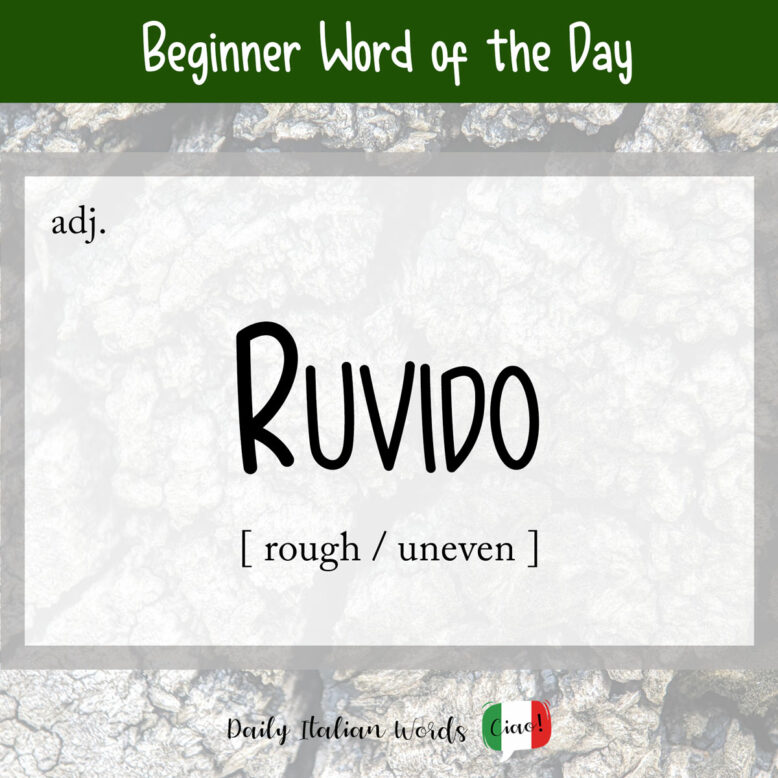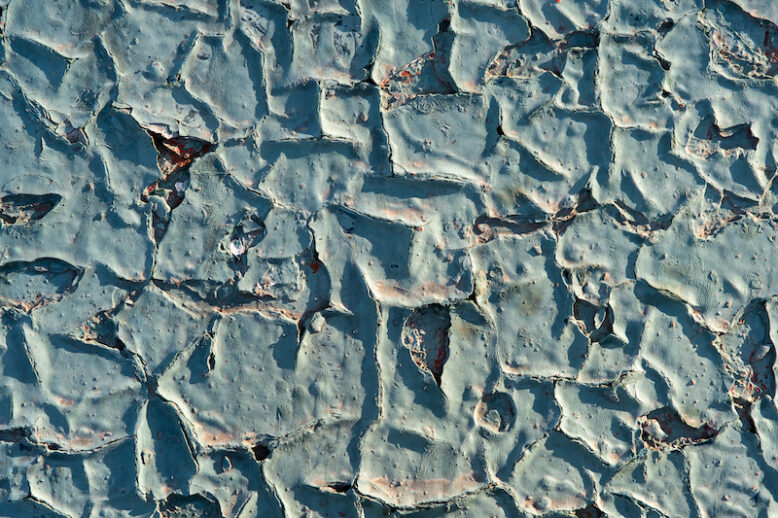If you want to describe a surface that is rough or uneven rather than smooth (liscio), you can use the adjective ruvido.
ruvido
rough / uneven

Since ruvido is an adjective, it has masculine, feminine and plural forms:
- un tavolo ruvido / dei tavoli ruvidi = an uneven table / (some) uneven tables
- una superficie ruvida / delle superfici ruvide = a rough surface / (some) rough surfaces
The word is derived from the Vulgar Latin *ru(g)ĭdum, is a derivative of ruga, meaning wrinkle.
Questo tavolo è troppo ruvido. Dobbiamo scartavetrarlo.
This table is too rough. We need to sand it down.

Like the English word rough, ruvido can also refer figuratively to someone with an abrasive, gruff or abrupt character, in addition to the behaviour, manners and words of said person.
Mio nonno aveva un carattere piuttosto ruvido ma gli volevo bene lo stesso.
My grandfather had a gruff personality but I loved him anyway.
Finally, it can describe something with a harsh flavour, such as a bitter wine (vino ruvido).
Heather Broster is a graduate with honours in linguistics from the University of Western Ontario. She is an aspiring polyglot, proficient in English and Italian, as well as Japanese, Welsh, and French to varying degrees of fluency. Originally from Toronto, Heather has resided in various countries, notably Italy for a period of six years. Her primary focus lies in the fields of language acquisition, education, and bilingual instruction.


